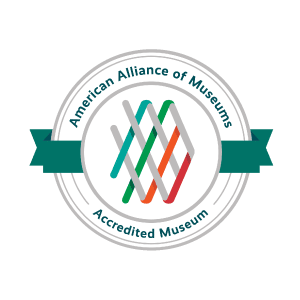All Ages
Grade 4 to Adult
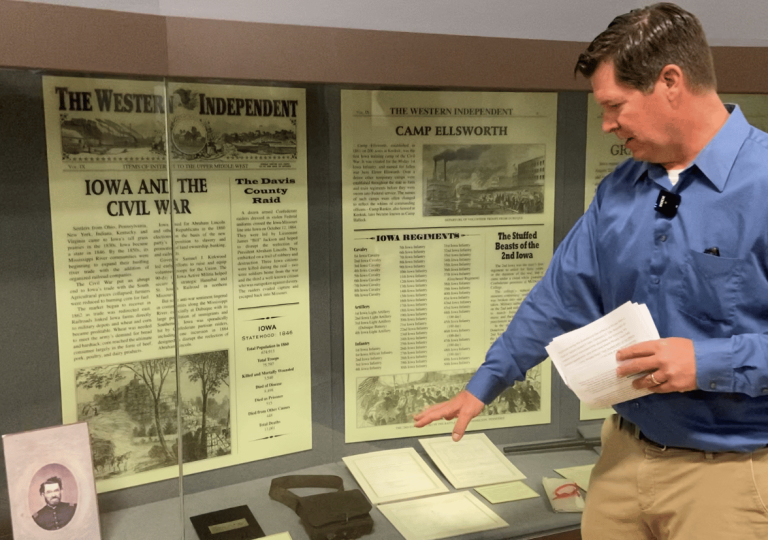
Add one of the following classroom activities to the Midwest in the Civil War Tour for an additional $3 per student.
Capacity: 25 students per session
Time: 30 minutes
This program discusses the system of race-based slavery that enslaved nearly four million African Americans in America at the beginning of the Civil War. The program explores the lives of the enslaved and what methods existed for them to rebel against their enslavers to possibly bring about their own freedom. Students will work in small groups to learn about the lives of several individual African Americans–some enslaved, some free–and represent their experiences by creating exhibits using artifacts that represent each individual’s life story.
Capacity: 40 students per session
Time: 30 minutes
Knapsack. Canteen. Blanket. Haversack. Cartridge Box. Civil War soldiers carried all of their personal items and military equipment wherever they went. To avoid being overburdened, soldiers made decisions about what to carry in order to survive months of camping, marching, eating, and soldiering.
During this program, educators from the Civil War Museum will introduce students to the uniforms, equipment, and personal items that Civil War soldiers used in camp and on the battlefield. Students will also be asked to think critically about what they would choose to carry and what they would leave behind if they were in the same situation as a Civil War soldier.
Capacity: 25 students per session
Time: 30 minutes
Engineers played a vital role in the Union Army, designing forts, constructing roads, drawing maps, and building bridges. During this program, students are challenged to think like a Civil War engineer to design and build a pontoon bridge in order to solve a common problem that Civil War armies often faced while moving over land–how to cross a river.
Midwest in the Civil War Tour
Capacity: Up to 100
Time: 60-90 minutes
Location: Fiery Trial Exhibit, “Seeing the Elephant” film
The tour can be adapted to meet the learning goals of students from Grade 4 to Grade 12
Midwest in the Civil War is a docent-led guided tour of the Civil War Museum’s main exhibit gallery The Fiery Trial. The tour uses immersive displays, artifacts, and hands-on activities to teach visitors the important roles the Upper Midwestern states of Illinois, Indiana, Iowa, Michigan, Minnesota, Ohio, and Wisconsin played before, during, and after the Civil War. Students will learn about the diverse communities who settled in the Upper Midwest, the stories of Freedom seekers who traveled through the region on their way to Canada on what became known as the Underground Railroad, the challenges soldiers faced in camp and battle, and how the results of the Civil War still impact the lives of Americans today.
As part of the tour, students will view the Civil War Museum’s award-winning 360-degree film entitled Seeing the Elephant. After the tour, students are encouraged to work in groups to explore areas of the exhibit gallery and share their findings with their fellow students.
Grades 1-3
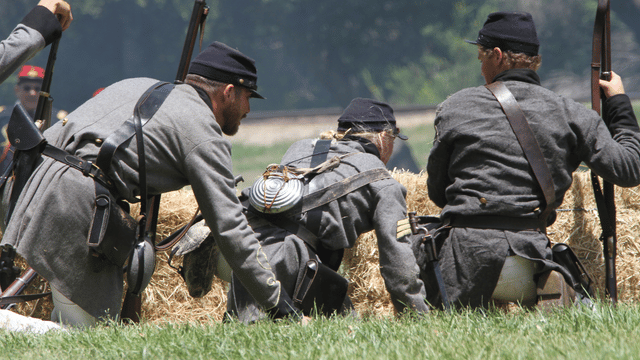
Mr. Lincoln's Army
Capacity: 50 students
Time: 60 minutes
Location: Fiery Trial Exhibit Gallery, Resource Center
What did it mean to be a member of Mr Lincoln’s army? In this program, students will have an opportunity to “step into a Union soldier’s shoes” by trying on replica pieces, learning drill marches, packing a soldier’s knapsack, and more. As part of their visit, students will have exclusive access to additional hands-on learning experiences in the Civil War Museum’s Resource Center.
Grades 4 and up
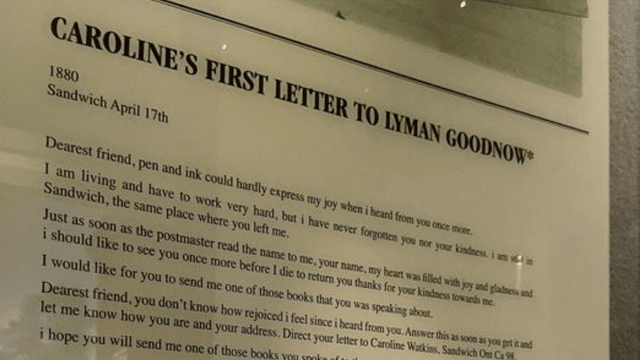
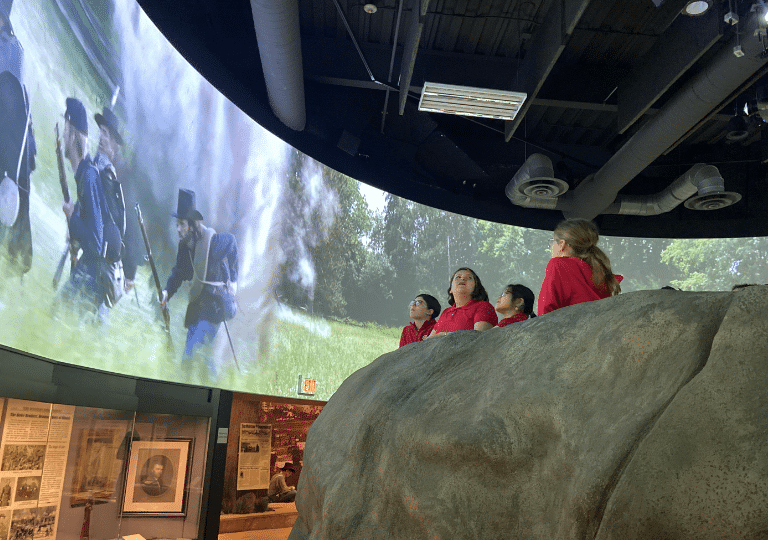
Voices of Freedom
Capacity: 50 students
Time: 90 minutes
Location: Fiery Trial Exhibit Gallery, “Seeing the Elephant” film, Classroom
Voices of Freedom is a two-part program that examines the diverse experiences of African Americans living in 19th-century America. One part discusses the system of race-based slavery that enslaved nearly four million African Americans in America at the beginning of the Civil War. The program explores the lives of the enslaved and what methods existed for them to rebel against their enslavers to possibly bring about their own freedom. Students will also have the opportunity to work in small groups to learn about the lives of several individual African Americans–some enslaved, some free–and represent their experiences by creating exhibits using artifacts that represent each individual’s life story.
The second half of the program is a docent-led tour of the Civil War Museum’s Fiery Trial Gallery that focuses on the military experiences of Union Soldiers, many of whom were African American. In fact, by the end of the war, 10% of the Union Army was made up of African American men.
As part of the tour, students will view the Civil War Museum’s award-winning 360-degree film Seeing the Elephant.
Grades 6 and up
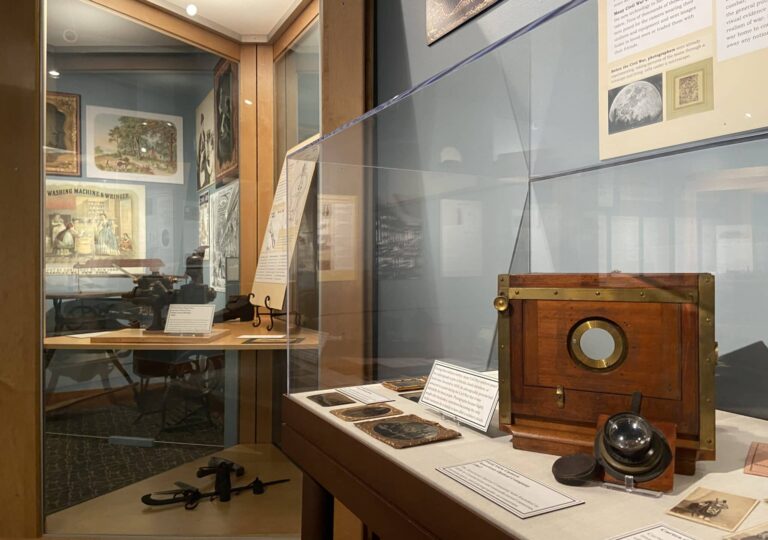
Technology through Time
Capacity: Up to 50 students, divided into 2 groups
Time: 60 minutes or 90 minutes (90 minutes depending on group size and timing)
Location: Civil War Innovations and Technology Exhibit, Classroom
New inventions transformed daily life during the Civil War—both for soldiers on the battlefield and families back home. In this interactive tour, students will explore three major areas shaped by innovation: farming, communication, and a groundbreaking new technology called photography.
Docents will guide students through what life was like before these revolutionary changes and how these innovations left a lasting impact—many of them still in use today.
In the second part of the program, students will take on the role of engineers. Their challenge: design and build a solution to a real-world problem faced by Civil War armies as they struggled to move troops and supplies across difficult terrain by land and water.
The 90-minute program includes a visit to the Fiery Trial exhibit and the award-winning 360° film experience.
Grades 6 and up
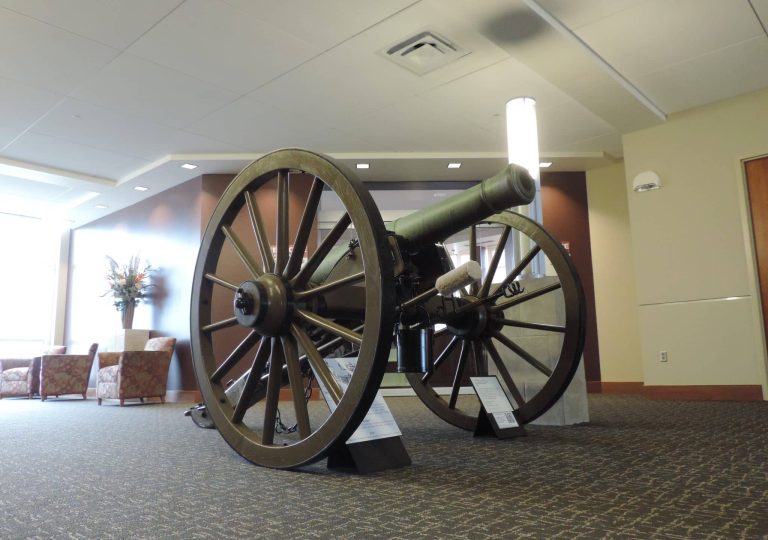
Civil War Innovations
Capacity: 50 students
Time: 90 minutes
Location: Fiery Trial Exhibit, “Seeing the Elephant” film, Classroom
Science and engineering were incredibly important during the Civil War. New weapons were devised that would forever change the way in which wars were fought, and new technologies would forever change the way in which people traveled and communicated. In this program, students will learn about the innovations and inventions that took place during the Civil War through a docent-led tour of the museum’s Fiery Trial Gallery. The second part of the program challenges students to think like engineers and design and build a solution to a problem armies often encountered as they attempted to move great distances over land and water.
As part of the tour, students will view the Civil War Museum’s award-winning 360-degree film Seeing the Elephant.
Pricing Information
All programs are $12/student (Kenosha County students receive 20% discount). Additional program add-ons, lunch space, and Streetcar are not included in the program fee.
Other subject areas and grade levels may be available; please contact our Education Services Coordinator, Carolina Curi-Bado at ccuribado@kenosha.org to make a special request.
Program Add-ons
Add any of the following to a program for an additional fee.
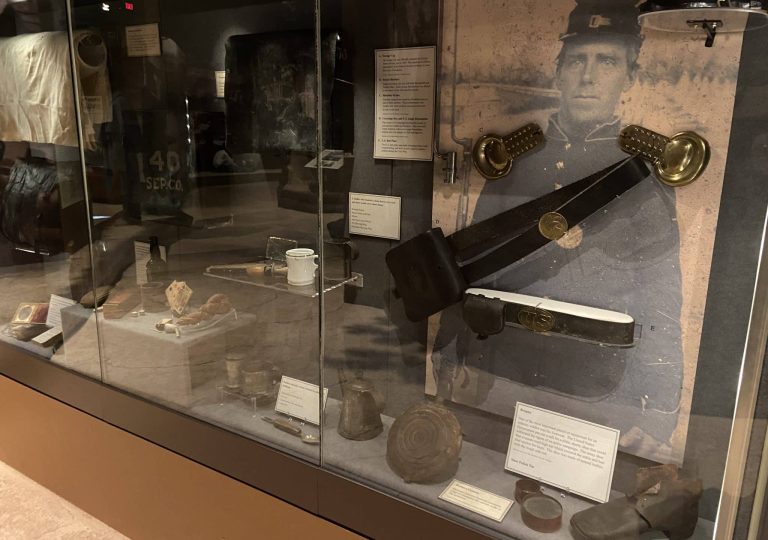
On The March
Capacity: 40 students per session
Time: 30 minutes
$3/student
Knapsack. Canteen. Blanket. Haversack. Cartridge Box. Civil War soldiers carried all of their personal items and military equipment wherever they went. To avoid being overburdened, soldiers made decisions about what to carry in order to survive months of camping, marching, eating, and soldiering.
During this program, educators from the Civil War Museum will introduce students to the uniforms, equipment, and personal items that Civil War soldiers used in camp and on the battlefield. Students will also be asked to think critically about what they would choose to carry and what they would leave behind if they were in the same situation as a Civil War soldier.
Open to all ages, but best suited for grades 4-12
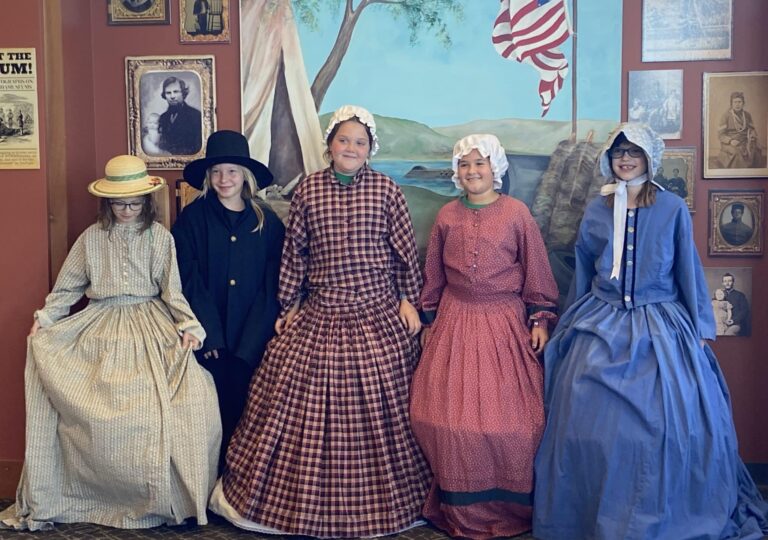
Resource Center
Capacity: 25 students per session
Time: 30 minutes
$1/student with paid program, $2/student without paid program
For an additional fee, your field trip can include time in the Civil War Museum’s Resource Center—a hands-on learning space where students can engage with history in interactive and creative ways.
Students can try on reproduction Civil War uniforms and dresses, handle reproduction artifacts, and participate in activities that explore daily life during the Civil War era. The Resource Center offers a memorable, tactile experience that brings history off the page and into the real world.
Open to all ages.
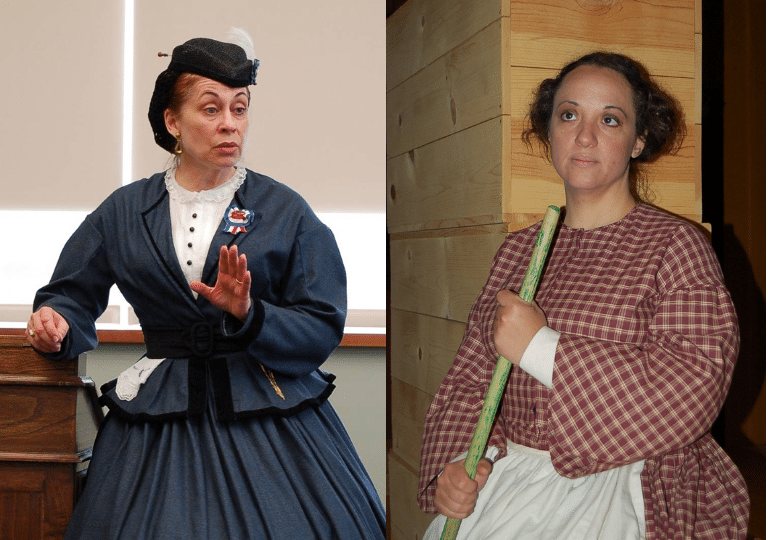
After Wisconsin governor Louis Harvey’s untimely death, his wife Cordelia was appointed Wisconsin’s representative to the Western Sanitary Commission. She traveled up and down the Mississippi River visiting Union hospitals and helping thousands of soldiers from Wisconsin and other Northern states. During the performance Harvey explains her travels and a dramatic meeting with a skeptical President Lincoln.
During the performance, the audience meets Caroline in Canada in 1880. She has just received a letter from Lyman Goodnow, one of the people that helped her travel the Underground Railroad from Wisconsin to Canada in 1842. This powerful first-person performance recounts their harrowing experiences and is based on the responses Caroline wrote to questions in Goodnow’s letter.
Theater Program
Capacity: 50+ students per session
Time: 60 minutes
Fee: $300 for up to 50; $6 for each additional student
Who better to tell the stories of the people who were touched by the Civil War or slavery than the individuals themselves?
Professional actors and actresses portray authentic historical figures with scripts based on firsthand accounts written by the individuals themselves: Caroline Quarlls, or Cordelia Harvey.
Theater performances are 30 to 45 minutes in length and include a brief question-and-answer session. Performers are always available after the performance to meet the public. The Civil War Museum does not allow photography or digital recording of theater performances under any circumstances.
Preview Caroline Quarlls Live Performance
Step back in time with Caroline Quarlls as she recounts her daring escape to freedom on the Underground Railroad. In this powerful performance, set in 1880, Caroline relives her harrowing 1842 journey from Wisconsin to Canada through her responses to a heartfelt letter from her rescuer, Lyman Goodnow. Based on real events, this vivid portrayal brings history to life for school groups, inspiring a deeper understanding of courage, resilience, and the fight for freedom.
Preview Caroline Quarlls Live Performance
Step back in time with Caroline Quarlls as she recounts her daring escape to freedom on the Underground Railroad. In this powerful performance, set in 1880, Caroline relives her harrowing 1842 journey from Wisconsin to Canada through her responses to a heartfelt letter from her rescuer, Lyman Goodnow. Based on real events, this vivid portrayal brings history to life for school groups, inspiring a deeper understanding of courage, resilience, and the fight for freedom.
Additional Amenities
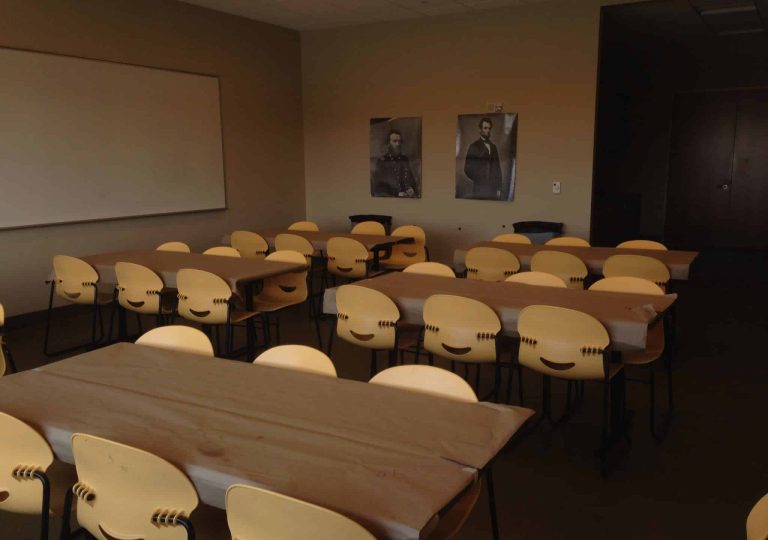
Lunch Space
With paid program: $1/student
Self-Guided groups: $2/person
Indoor lunch space is available at the Kenosha Public Museum and Civil War Museum. With paid programs, the lunch space is $1/student. For self-guided groups, lunch space is available for $2 a person. Reservations are available in 30-minute blocks. The Dinosaur Discovery Museum does not have an indoor lunch space, however, there is a park across the street from the building that may be used for picnics. Please note the museums do not have refrigerators, stoves/ovens, or microwaves available.
Although the museums do not have onsite restaurants or cafes, there are several dining options nearby. Visit www.downtownkenosha.org or www.visitkenosha.com for more information.
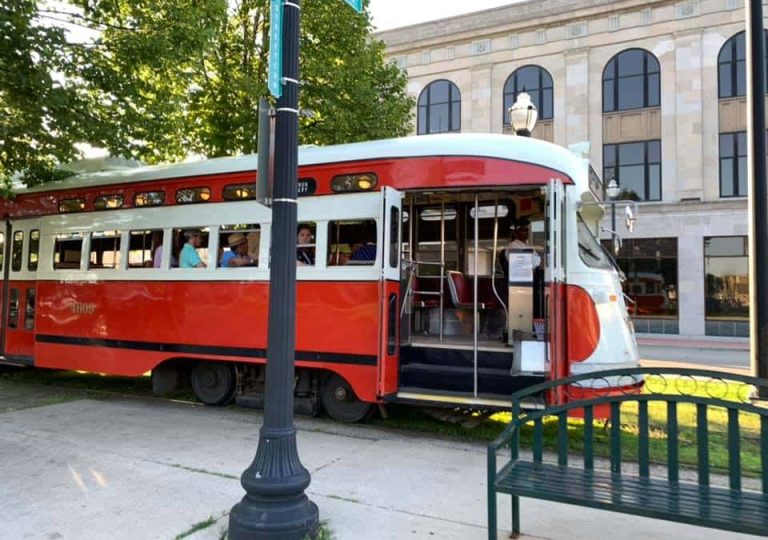
Streetcar
$1 for children 12 and under
$1.50 for 13 and over, including adults, chaperones, and teachers
The City of Kenosha features mid-century Electric Streetcars that ride along the lakefront and connects all three of our museums in a 15-minute loop. The museums can arrange a ride for your group with your program reservation for an additional fee.
Learn more about Kenosha’s Electric Streetcars here.
Plan Your Visit
Please let us know prior to your visit if you have any special accommodations or needs. Every effort will be made to ensure the trip is successful for everyone.
Elevators, noice-canceling headphones, and quiet spaces are available at all three museums.
Civil War Museum: There are uneven floors, talking mannequins, and low-light in the galleries. The museum also features a 360-degree film that utilizes strobe lights, lighting changes and loud noises to depict a Civil War battle.
Kenosha Public Museum: There are uneven floors, some sound, and blinking lights in the galleries.
Dinosaur Discovery Museum: Wheelchair access to the museum is located at the rear of the building.
Free parking is available. During the field trip reservation process we will provide you with the location of vehicle and/or bus parking.
All three museums have stores adjacent to the lobby. All students must have an adult present, and the number of people allowed in the store may be limited by museum store staff.
A chaperone-to-student ratio of 1:8 is required. Required chaperones are free. Any additional chaperones must pay $5 for admission. Chaperones are expected to stay with their groups and monitor their behavior while in the museum.
Programs must be scheduled at least three weeks prior to the requested program date. If we are able to accommodate a last-minute program, payment will be due at the time the program is scheduled.
Dates and program availability is based on a first-come first-served basis. A non-refundable $50 deposit is required to secure your group’s date. Once the deposit is received, a program confirmation and invoice will be sent and your program will be scheduled. If the deposit is not received the date is not reserved.
A non-refundable $50 deposit is due upon your reservation to secure your date. Final headcount and full payment is due two weeks prior to the scheduled program. If payment is not received two weeks prior we reserve the right to cancel the program.
If payment is not received at the museum upon the date of the program you will incur a $40 late fee. We accept Visa, MasterCard, Discover, cash, or check.
Refunds will be given for cancellations that occur at least a week in advance of the program date. The $50 deposit is non-refundable but can be used to reserve a future date in the same calendar year.
The following rules should be shared with all attendees in your group, including students, children, and adults.
- No running, shouting, or rough-housing
- Students/children must stay with adult chaperones at all times
- No food, gum, or beverages are allowed in exhibits
- Respect other groups and individuals in the museum
- Some aspects of our exhibits are “hands-on” but anything can be damaged. Therefore, exercise care in their use and respect museum property
These rules are to keep everyone safe and to allow maximum enjoyment of our programs and facilities for everyone in our building. Kenosha Public Museums reserves the right to expel any person or group behaving in a manner we deem unfit. Persons or groups that are asked to leave may also jeopardize their chances to reserve or attend future visits.
Sign up for our eNewsletter!
News about Civil War Museum workshops, events, exhibits, and more, delivered to your inbox

